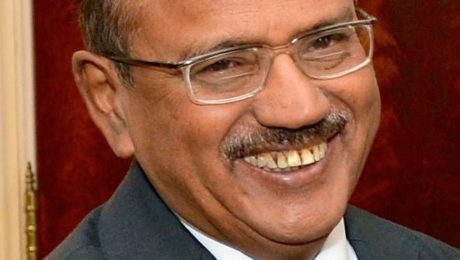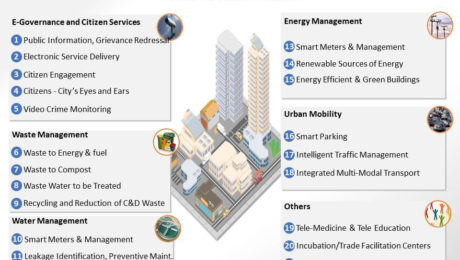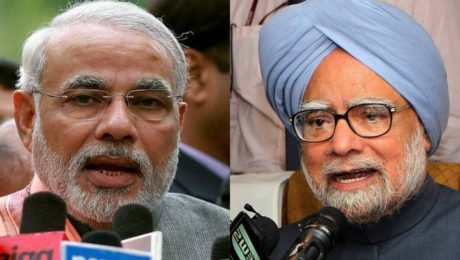10 things that makes Ajit Doval, the Indian Hulk.
“You do one more Mumbai, you lose Balochistan”
Ajit Doval, the National Security Adviser of India, former Director of the Intelligence Bureau of India. Here is the list of deeds he has done that makes me say he is the Indian Hulk.
- Ajit Doval played an extraordinarily foremost role in charting out primarily one of its kind cross-border operation in Myanmar and inflict casualties on insurgents tormenting India’s Peace.
- Doval executed a prime operation in ensuring a breezy return of forty-six Indian nurses who were trapped in a clinic in Tikrit, Iraq. After the family members lost all contacts with them following the capture of Mosul by ISIS, Ajit Doval, on a prime secret mission flew to Iraq on 25 June 2014 to appreciate the role on the ground and make excessive-degree contacts in the Iraqi government.
Doval when asked about how he would handle Pakistan in an event, he said: One, transforming India’s “defensive” posture, under the UPA, to an “offensive-defensive” one. That is, from being in a passive mode of trying to prevent attacks, or acting after an attack has occurred, to one “of going to the place where the terror strikes originate and taking them out”. Two, making it ‘unaffordable for Pakistan” to continue their proxy war by reversing the ‘bleeding India with a thousand cuts” on its head; by “making it unaffordable” for Pakistan to indulge in terror as a “war with other means”. “If you do a Mumbai, you will lose Balochistan”. Three, using India’s newfound economic and financial clout by “out-funding” Pakistan by “matching” and even “bettering” what the ISI pays out to the Taliban. This, of course premised on the assumption that the Taliban, for all its posturing, is a mercenary outfit than an “ideological” one.
- Hiding and embedded deep undercover in Pakistan for almost six years he pulled off daring coups that left ISI clueless.
- He was once in the Golden Temple within the days of Indian navy’s Operation Bluestar, posing as a Pakistani undercover agent, gaining the militants’ self-assurance, and then reconnoitering the militants preparations and fortifications in the holiest of Sikh shrines.
- Often called Modi’s “007”.
- In the 1980s, when the Mizo National Front, driven by Laldenga, was holding the country to emancipate with his revolt, he all of a sudden discovered six of his seven authorities had forsaken him, all won over by Ajit Doval.
- India’s major Negotiator in Indian airlines Flight, IC-814 hijack in Kandahar.
- Doval’s concept of becoming friends with and changing over terrorists in J&K into counter-terrorists was another strange masterstroke that was at first scrutinized however turned out to be an exceptionally viable measure in stifling the rising tide of militancy there.
- Doval was additionally the agent to hold chats with the US about participation on terrorism and with Israel on fortifying protection ties.
- Doval does not believe in squandering time while attempting strictly to adhere to the right procedure. A convention is not something that he may break his head on for he believes in effective action.
- Published in Blog, My Views, Politics, Uncategorized
Smart City Mission, decoded.
What is the Smart City Initiative?
The conceptualization of Smart City, varies from city to city and country to country, depending on the level of development, willingness to change and reform, resources and aspirations of the city residents.
What’s the Objective of behind the Smart City Program?
The objective is to promote cities that provide core infrastructure and give a decent quality of life to its citizens, a clean and sustainable environment and application of ‘Smart’ Solutions.
What are the developmental elements that a smart city would get?
The core infrastructure elements in a smart city would include:
i. adequate water supply.
ii. assured electricity supply.
iii. sanitation, including solid waste management.
iv. efficient urban mobility and public transport.
v. affordable housing, especially for the poor.
vi. robust IT connectivity and digitalization.
vii. good governance, especially e-Governance and citizen participation.
viii. sustainable environment.
ix. safety and security of citizens, particularly women, children and the elderly.
x. health and education.
What are criteria for eligibility for Smart City Program by Govt. of India?
- Increase over Census 2011 or Swachh Bharat baseline on number of household sanitary latrines (whichever is less).
- Making operable Online Grievance Redressal System with response being sent back to complainant.
- At-least first monthly e-newsletter published.
- Electronically place project-wise municipal budget expenditure information for the last two financial years on the website.
- Levy of compensatory penalty for delays in service delivery.
- Collection of internally generated revenue (e.g. taxes, fees, charges) during the last three FYs (2012-15).
- Payment of salaries by ULB up-to last month.
- Audit of accounts for FY 12-13.
- Percentage contribution of tax revenue, fees and user charges, rents and other internal revenue sources.
- Percentage of establishment and maintenance cost of water supply.
- Percentage contribution of internal revenue sources (self-generated) used for capital works during FY 2014-15.
- Percentage of City-level JnNURM Reforms achieved.
- Percentage of completion of Projects sanctioned upto March, 2012 under JnNURM.
What’s the strategy for efficient implementation of the Program?
The implementation of the Mission at the City level will be done by a Special Purpose Vehicle (SPV) created for the purpose. The SPV will plan, appraise, approve, release funds, implement, manage, operate, monitor and evaluate the Smart City development projects. Each smart city will have a SPV which will be headed by a full time CEO and have nominees of Central Government, State Government and ULB on its Board.
The States/ULBs shall ensure that,
(a) a dedicated and substantial revenue stream is made available to the SPV so as to make it self-sustainable and could evolve its own credit worthiness for raising additional resources from the market.
(b) Government contribution for Smart City is used only to create infrastructure that has public benefit outcomes. The execution of projects may be done through joint ventures, subsidiaries, public-private partnership (PPP), turnkey contracts, etc suitably dovetailed with revenue streams.
The SPV will be a limited company incorporated under the Companies Act, 2013 at the city-level, in which the State/UT and the ULB will be the promoters having 50:50 equity shareholding. The private sector or financial institutions could be considered for taking equity stake in the SPV, provided the shareholding pattern of 50:50 of the State/UT and the ULB is maintained and the State/UT and the ULB together have majority shareholding and control of the SPV. Funds provided by the Government of India in the Smart Cities Mission to the SPV will be in the form of tied grant and kept in a separate Grant Fund. These funds will be utilized only for the purposes for which the grants have been given and subject to the conditions laid down by the MoUD. The State Government and the ULB will determine the paid up capital requirements of the SPV commensurate with the size of the project, commercial financing required and the financing modalities. To enable the building up of the equity base of the SPV and to enable ULBs to contribute their share of the equity capital, GoI grants will be permitted to be utilized as ULBs share of equity capital in the SPV, subject to the conditions given in Annexure 5 of the guidelines. Initially, to ensure a minimum capital base for the SPV, the paid up capital of the SPV should be such that the ULB’s share is at least equal to Rs.100 crore with an option to increase it to the full amount of the first instalment of Funds provided by GoI (Rs.194 crore). With a matching equity contribution by State/ULB, the initial paid up capital of the SPV will thus be Rs. 200 crore (Rs. 100 crore of GoI contribution and Rs. 100 crore of State/UT share). Since the initial GoI contribution is Rs.194 crore, along with the matching contribution of the State Government, the initial paid up capital can go up to Rs.384 crore at the option of the SPV. The paid up capital may be enhanced in the subsequent years as per project requirements, with the provision mentioned above ensuring that ULB is enabled to match its shareholding in the SPV with that of the State/UT. The structure and functions of the SPV are given in Annexure 5 of the guidelines and the Articles of Association will contain such provisions. A model Article of Association is given in the Toolkit. After selection of the cities in Stage II of the Challenge, the process of implementation will start with the setting up of the SPV. As already stated, it is proposed to give complete flexibility to the SPV to implement and manage the smart city project and the State/ULB will undertake measures as detailed in Annexure 5 of the guidelines for this purpose. The SPV may appoint Project Management Consultants (PMC) for designing, developing, managing and implementing area-based projects. SPVs may take assistance from any of the empanelled consulting firms in the list prepared by MoUD and the handholding agencies. For procurement of goods and services, transparent and fair procedures as prescribed under the State/ULB financial rules may be followed. Model frameworks as developed by MoUD may also be used for Smart City projects.
Source: smartcities.gov.in
- Published in Blog, My Views, Uncategorized
Corruption a Part of my Life.
India in the 21st century is hit by an epidemic disease called the “Corruption”, a disease that seems to just incurable. Today we are so badly hit by the disease that is has controlled all our sectors be it Sports, Finance, Defense and most important Infrastructure. We have been struggling to get rid of the rules that have become a part of our life, sad fact but can’t help it as all say. I have been trying to get to the root cause of this disease and somehow managed to learn a few things about it.
Today in the 21st century where we have become a nation of 120 crore, financial stability is one thing that has taken a toll on every human. Our major population being the middle class has indeed become a great concern, as they strive to have a stable life. In the quest of financial stability we consider the government jobs to be the best that is once you are permanent your life is told to be on the right track, but to get the job is the real task. Everybody knows the amount of Cash & Influence is demanded to a simple government job. I tried to get deeper into the problem and I saw that the whole system of recruitment itself is filled with flaws. Consider a middle class graduate applying for a job of a Clerk (FDA) according to the rules you write the KPSC i.e. for Karnataka the toppers are selected and the person must be given this branch based on his marks/ranking, but in reality after the merit list is announced there is a lot of corruption that goes into assigning the branch. Now this graduate gets named in the merit list and has to struggle with the corruption demand which is usually around Rs.5 lacs plus a lot of influence at the right levels, assume that person undergoes the drill. Arranging 5 lac cash isn’t an easy task for a middle class person and this money that is arranged is termed as a loan. So a person has already started his career with –5 lacs. After all the stunts the person gets the job and he starts working with a salary of 10 -12 thousand per month and a loan of 5 lac that he has to repay, now in such a condition a person is bound to struggle for other sources of income, sitting in the office. In such a condition he is going to ask money for his every work! Which I feel becomes like his right!!! He will require at-least 2-3 years to pay back the loan and lead this routine life so in these 2-3 years he is already infected by the disease. After this period there will be some add-on on the necessity lists like a house, a vehicle, requirements of his family, kids, etc, and to add on that is the transfers that are made by the government, so that leads to the growth of the disease by the time he reaches half way the disease takes over the control. This holds well in all sections of the government offices. In such a situation it’s the system of recruitment that has to be blamed. The recruitment of the IAS, IPS & IFS officers seem to be full proofed. We rarely see any corrupt IAS, IPS or IFS officers that’s because the recruitment system is clean.
Coming to the corruption in the Infrastructure, I hope people are aware of the 10% rule by our netas, just in case you aren’t aware it goes like this “Any Government developmental work that is taken up by any contractor, he is liable to pay the concerned constituency MLA 10% of the total bill of the Developmental work taken up by him or else he struggles to get his bill cleared”. This is only with the MLA, after that there is a line of other officials which he needs to take care of, if the chain is broken at any point of time the contact is gone! In such a condition what does a contractor do!? He compromises on the quality, over charges, can’t blame him either. So all our bad roads, downgrade Infrastructure is a credit of our beloved netas. In this case even the netas cannot be blamed, because they spend crores of money to woe us and get our votes so practicing corruption is taken as their part of the duty.
It’s been 66 years of our independence and I strongly feel following the constitution that was written then has started showing the adverse effects, it’s time to modify our constitution and adapt to the changes that are required at this point of time. I feel our ancestors wrote the constitution thinking that our population would grow inversely with time; never had they even thought that we would be blown up by the population.
Lok – Pal is just an attempt that will clean the system to an extent of say 10-15% not more than that. Unless we get the rules of recruitment right we will struggle with this disease and looking at the trends this will just get worst as time will pass.
- Published in Blog, My Views, Uncategorized
India needs a Leader.
Reposting a Blog I wrote 21/07/2013.
India a land where we see political crises every second day, politicians filled with corruption & unwanted charges. I am not a Pro BJP or Congress I am just keep forth my views on current political situations. India is not a country that can be taken forward just one person..! India is a land of a variety of cultures language. Every culture differs from each other drastically. In such a situation it becomes very difficult to know the needs of the each culture. The present India having a large part of population in the youth the political parties target the youth, although the youth knows what they need still get yields to money, alcohol and other materialistic things when it comes to voting.
The Congress has ruled India over 9 years now and outcome India has grown in various sector at the same time lost a lot wealth because of corruption be it the Commonwealth Games, 2G scam, Coalgate, Railgate and so on!!! In such a situation people are looking out a change and BJP offers that, “Narendra Modi”. No doubt that he is an exceptional leader but we need to realize that a country cannot be run by just one person. Narendra Modi and his innovative ideas are something that no leader is currently offering. Dr. Manmohan Singh is such a noble and uncorrupted man but still takes a beating when it comes management of his Cabinet. The number of Ministers stuck in the corruption charges is something that has brought a very bad name for the entire Government. U can’t just on blame the Congress men for that, even BJP did the same thing when they came to power in Karnataka for the very first time in 2008. Right from Chief Minister to the Ministers faced various charges ranging from Corruption, Sexual harassment, Illegal mining, Porngate, Land grabbing and all possible charges most of them were even proved. After seeing all this I feel all the parties are same. All parties have some real good men at the same time the bad ones too..! Narendra Modi is a a man of ideas & Leadership. His Leaderships are unmatchable when compared with the other leaders. I am sure he will be a great Prime Minister, when the question about his council of ministers that worries me is who will be in his cabinet? Expect a hand few of people like Arun Jaitley, Smriti Irani, Ravi Shankar Prasad etc. there are few able people, the same thing with Congress expect a hand few like Kapil Sibal, Mani Shankar Aiyar, Mr. Chidambaram there are no much people in Congress either. There are so Many important questions that go unanswered. Will India ever get an alternate for the Congress/BJP? Will India ever vote for unconditionally? Will we ever have a government which will be free of controversies? Will India ever get the right people it needs at this point of time?
India is not a country that be run by a single person, we need a bunch of educated people who can Understand the needs of the communities they belong from, with a leader who can decide things with a dynamic approach. Politics will have to be taken to a much disciplined Level like the one we see in US, UK where people are allowed to talk and are heard in their senate. We need to look beyond the parties beyond the religion & region and choose our leader. We need able set of able Economists to handle our financial matters. We need a Change in the system.
- Published in Blog, Company Insights, My Views, Politics, Uncategorized



